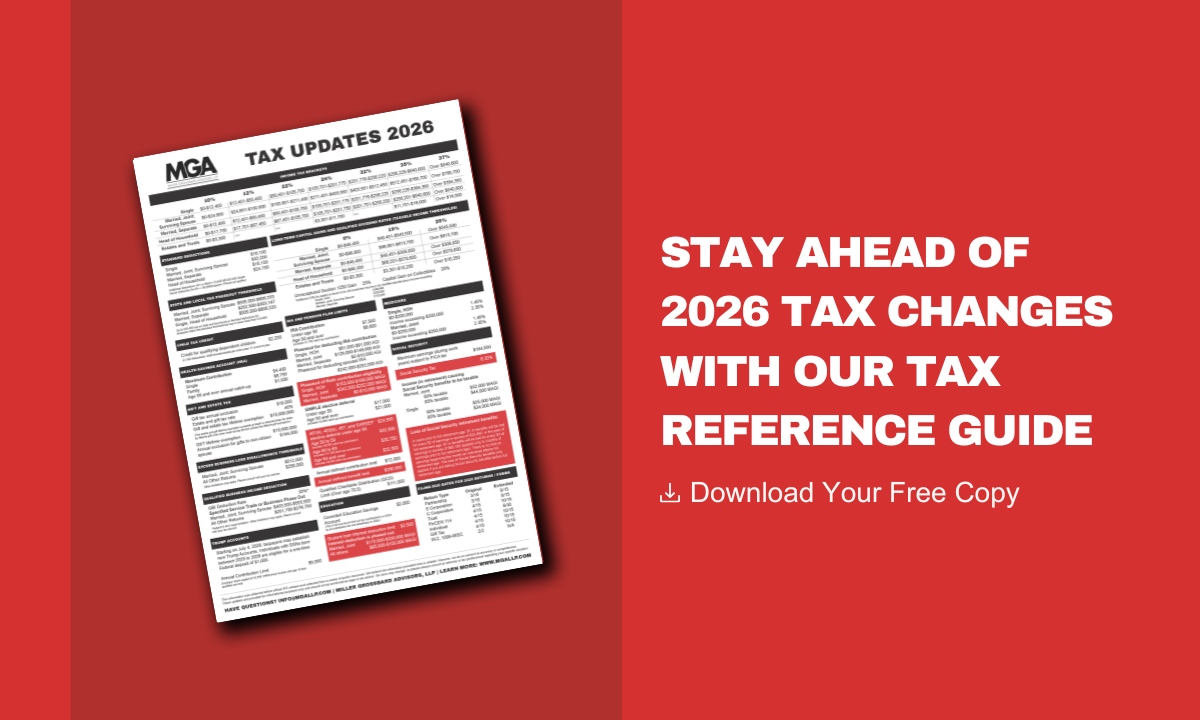On August 16, President Biden signed the Inflation Reduction Act (IRA) of 2022 into law. The $750 billion law is part of President Biden’s previously announced plan and focuses on tax, climate, and healthcare sectors.
The new law imposes a 15% corporate income tax on companies with $1 billion or more in annual profits and aims to invest over $400 billion in energy security and climate change programs. It allows Medicare to negotiate lower prices on some prescription drugs, extends the Affordable Care Act through 2025, provides $4 billion in funding for drought recovery in the Western U.S., and aims to reduce the nation’s deficit by more than $300 billion.
Here we have put together a summary of the tax changes and what impact the new law may have on businesses and individuals.
Key Tax Changes in the Inflation Reduction Act of 2022
- Excise Tax on Stock Buybacks
One of the key provisions of the new tax law includes a 1% excise tax on domestic publicly traded corporations that repurchase their stock directly, which could impact many corporations since repurchasing stock trends are on the uptick in a bear market.
This provision would be effective for repurchases that occur after December 31, 2022, and the 1% surcharge will not be deductible for tax purposes.
- 15% Corporate Alternative Minimum Tax Based on Book Income
Although the corporate income tax rate is currently 21%, many corporations actually pay little to no tax due to special credits and deductions. The new law addresses this issue by imposing a 15% minimum tax on corporations with $1 billion or more in annual profits, effective for tax years beginning after December 31, 2022.
This new provision applies to corporations in the U.S. that meet a $1 billion average annual AFSI test over three years while exempting S corporations, regulated investment companies, and real estate investment trusts. Because of this, very few companies are expected to be subject to this new tax.
- Expands Payroll Tax Credit Benefits for Small Businesses
The maximum research tax credit that can be applied against payroll taxes has been doubled for tax years beginning after December 31, 2022. This means that qualified small businesses, which includes startups, can now reduce payroll taxes up to $500k annually, a big step up from the current benefit of $250k.
- Extension of Business Losses of Noncorporate Taxpayers
Excess business loss deductions for individuals and trusts are limited under current law. This provision extends that limitation for two additional years, which means it is now set to expire in 2028.
- IRS Enforcement Funding
The Act provides $80 billion to the IRS over ten years to improve tax compliance by increasing enforcement on taxpayers with income exceeding $400k with enhanced technology and additional employees.
- Extension of Clean Energy and Healthcare Tax Credits
The bill provides a new round of green-energy incentives, which includes the Consumer Tax Credit for those who purchase a new electric vehicle beginning in 2023. Other notable changes are the extension of current credits for renewable energy and alternative fuel incentives and benefits for energy-efficient improvements to both commercial real estate owners and homeowners.
We will share more details on the cars that qualify for the expanded electric vehicle credits soon via our blog. Subscribe to our instant notifications so you don't miss it.
The provisions affecting Medicare and the overall healthcare industry are extensive. Two of the main takeaways are that the federal government can now negotiate certain drug prices for Medicare beneficiaries and the expansion of the Affordable Care Act premium tax credit program through 2025.
Making the New, Changing Tax Laws Simple
While Congress and the IRS make everything complex, you can rest assured that we are keeping up with the ever-changing tax laws and sharing the key points with you so that you can make well-informed and smart decisions for you and your business.
If you have questions about the Inflation Reduction Act of 2022 and its implications for you or your business, please reach out to us.
We are here to make the complex simple.
Subscribe Now!
Enjoy reading our articles? Click here to receive instant notifications as we publish new blog posts, videos, webinars, white papers, and more. Or, if you'd prefer monthly updates instead, you can subscribe here.
.png?width=191&name=mgalogofinal-01%20(3).png)




